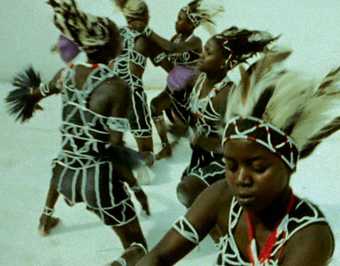
William Klein The Panafrican Festival of Algiers
Pan-Africanism was the idea that in order to achieve their potential, all Africans on the continent and its diaspora needed to unify under the banner of race. This would lead to the establishment of political awareness and a cultural consciousness of racial pride through which they would be able to solve the problems of slavery, discrimination and attacks on the African race.
There are three thinkers associated with the evolution of the movement: the African-American priest Alexander Crummel, the politician and educator Edward Wilmot Blyden and, later, the writer and lawyer Henry Sylvester-Williams who formed the Pan-African Association.
Pan-Africanism informed many later ideological movements including Négritude in the 1930s and the historically significant Pan-African Arts and Cultural Festival in Algiers in 1969.
